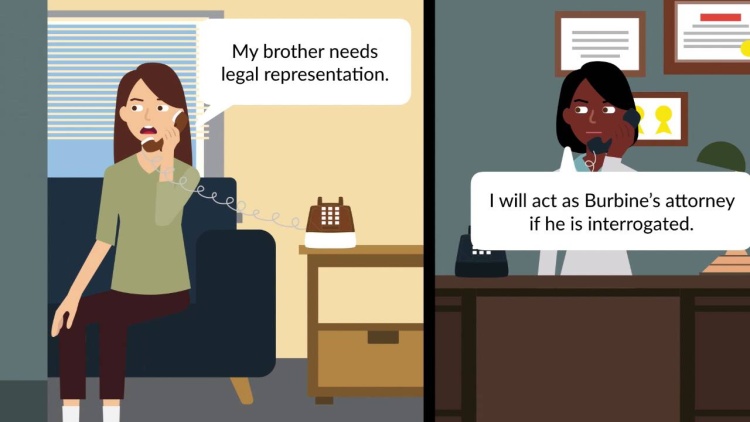Moran v. Burbine
United States Supreme Court
475 U.S. 412, 106 S. Ct. 1135, 89 L. Ed. 2d 410 (1986)
- Written by Shelby Crawford, JD
Facts
Police arrested Brian Burbine (defendant) for burglary and then realized he was suspected of a murder that happened months earlier. Burbine’s sister called the public defender’s office to get a lawyer to represent Burbine on the burglary charge; she was not aware that he was suspected of murder. A lawyer then called the police station and stated that she would represent Burbine if he was going to be put in a lineup or questioned. The lawyer was told by police that Burbine would not be questioned or put in a lineup that evening. The police did not tell the lawyer that Burbine was suspected of murder. Burbine never knew that his sister retained a lawyer to represent him or that the lawyer called the police station. Shortly after the lawyer’s phone call, police began interviewing Burbine about the murder. Before each interview, they gave Burbine proper Miranda warnings. Burbine signed three separate written waivers of his Miranda rights and three written statements admitting to the murder. Burbine moved to suppress the written confessions prior to his trial. The court denied his motion to suppress and held that he had knowingly waived his Miranda rights. He was convicted of murder in the first degree. On appeal to the state supreme court, his conviction was affirmed. Burbine petitioned the federal court for a writ of habeas corpus but was denied. On appeal to the United States Court of Appeals for the First Circuit, his conviction was reversed. The United States Supreme Court granted certiorari.
Rule of Law
Issue
Holding and Reasoning (O’Connor, J.)
Dissent (Stevens, J.)
What to do next…
Here's why 904,000 law students have relied on our case briefs:
- Written by law professors and practitioners, not other law students. 47,100 briefs, keyed to 995 casebooks. Top-notch customer support.
- The right amount of information, includes the facts, issues, rule of law, holding and reasoning, and any concurrences and dissents.
- Access in your classes, works on your mobile and tablet. Massive library of related video lessons and high quality multiple-choice questions.
- Easy to use, uniform format for every case brief. Written in plain English, not in legalese. Our briefs summarize and simplify; they don’t just repeat the court’s language.





